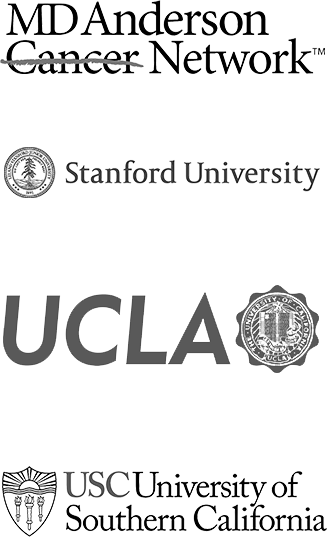Endoscopic Cancer Surgery
Cancer treatment often utilizes a multi-modal approach combining chemotherapy, surgery, and radiotherapy. Chemotherapy is sometimes recommended to reduce a tumor prior to surgery or following surgery to eliminate any trace of remaining cancer cells.
Multiple treatments require careful coordination among a cancer care team, and when chemotherapy is involved, one of the most qualified and experienced with complex cases is the Cancer Center of Southern California. The Center is lead by chemotherapy expert Dr. Sant Chawla who is renowned for his innovative work in development of drug therapeutics. With over 30 years in the cancer field, Dr. Chawla has seen many advances. One of them is the prevalence of endoscopic cancer surgery which has replaced many traditional open surgeries used in the past.
What Is Endoscopic Cancer Surgery?
Endoscopic cancer surgery is another term for minimally invasive. It’s a method originally introduced in the late 1980s and became a surgical game changer for the medical field. Keys to the technique are the endoscope and special instruments carefully designed for minimal affect. The instruments are smaller and the endoscope, which has a camera at one end, televises an image for the surgeon.
The benefit of the endoscope is its camera feature, which enables the surgeon to view the operation in detail throughout the procedure. With the camera as an aid, this avoids the need to open and expose the body in a more invasive traditional surgery. All the surgical instruments are small so the only incisions required are a few, minimal ones necessary to the procedure.
Endoscopic cancer surgery has proven effective for treating numerous cancers including:
- Rectal
- Colon
- Esophageal
- Stomach
- Throat
It’s also an aid in diagnosing certain cancers, such as colon, then treating the disease at the same time. A surgeon uses the procedure for an internal examination and if any cancerous growths are found, they can be removed immediately.
Endoscopic Benefits
A minimally invasive technique, endoscopic procedures offer many benefits to patients, including:
- Smaller incisions
- Shorter time in surgery
- Fewer side effects
- Less blood
- Quicker recovery
Not every patient is a candidate for endoscopic cancer surgery. Qualification depends on the type and stage of cancer and tumor characteristics. Additionally, a patient’s medical history, physical condition, and age are important considerations. If a patient is part of a multi-modal treatment plan, surgery needs to be coordinated with all practitioners. If the Cancer Center is part of the cancer care team administering chemotherapy, Dr. Chawla often steps in to coordinate all aspects of the treatment schedule.
Our Specialists Can Help You
If you’ve been diagnosed with cancer and would like to know more about your treatment options, contact the Cancer Center of Southern California. We can provide a second opinion or work with primary doctor as part of your treatment plan. Call today at 310-552-9999 to schedule a consultation.
Next, learn about cancer recurrence prevention tips.


